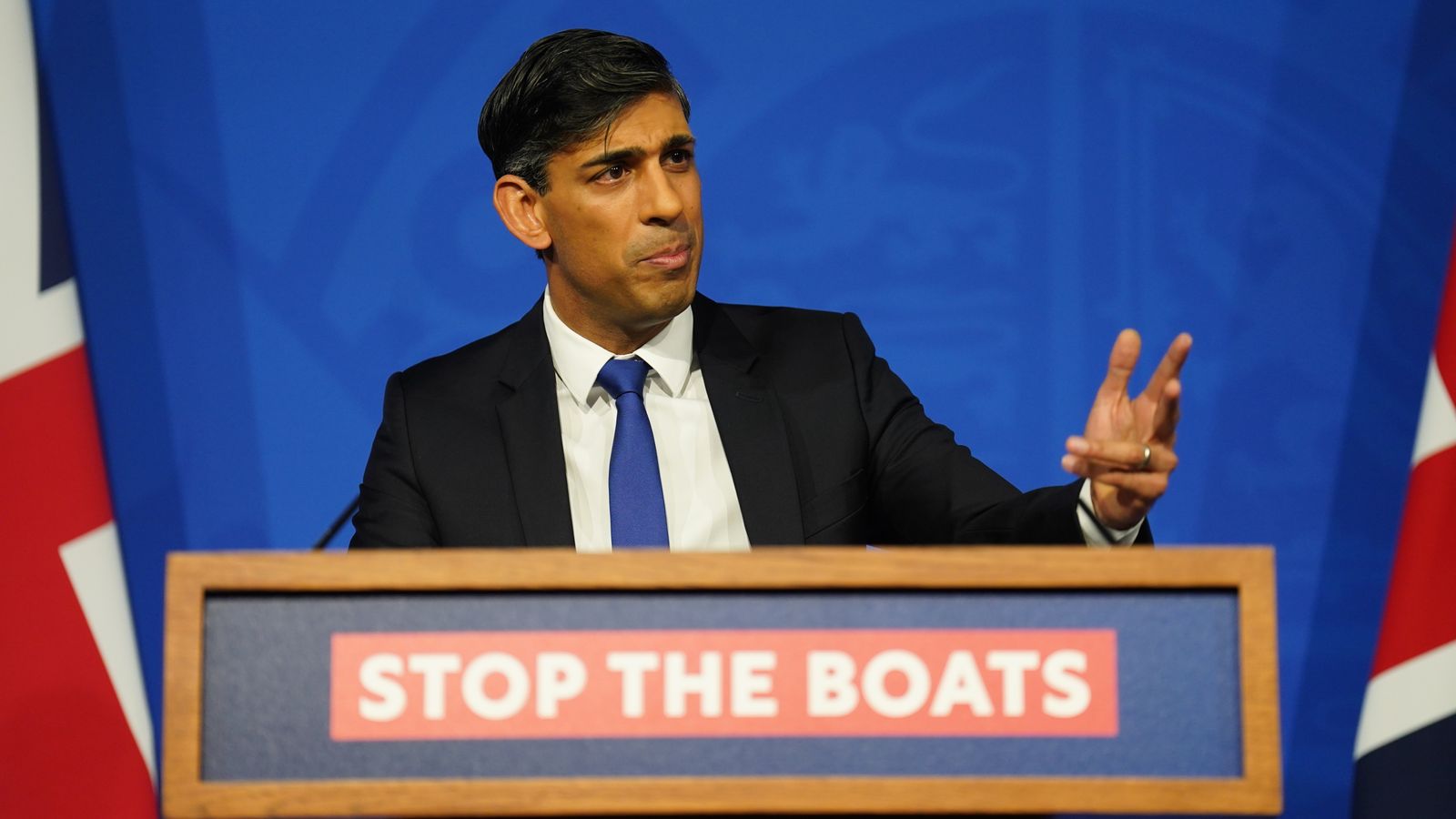Rishi Sunak has dodged questions over whether he will call a general election if he loses a crunch vote on his Rwanda bill – which he insisted was not a vote of confidence in his leadership.
The prime minister repeatedly defended the bill from its critics at a press conference on Thursday as questions mount over whether it will be able to pass in the Commons next week.
Mr Sunak described the bill, which compels UK judges to treat Rwanda as a safe country for asylum seekers, the “toughest anti-immigration law” that had ever been brought in and that he knew it would “upset some people”.
The prime minister convened the news conference just hours after Robert Jenrick quit his post as immigration minister over the bill, which he said did not go “far enough” and represented a “triumph of hope over experience”.
During the press conference, Mr Sunak was asked by Sky News’ political editor Beth Rigby whether he would call an election if he could not get the bill through parliament.
“You’ve lost control of your party and this has become a confidence issue, not in parliament but in you,” she said.
“Do you accept that, and will you call an election if you lose these votes?”
Politics latest: Boris Johnson says Eat Out to Help Out not a ‘gamble’
Mr Sunak said he wanted to “finish the job”, adding: “I am confident I can get this thing done.”
The government published the long-awaited Safety of Rwanda Bill just a day after Home Secretary James Cleverly visited the country to sign a new treaty aimed at reviving the government’s troubled plan to send asylum seekers there.
In its judgment last month, the UK’s highest court ruled the scheme unlawful on the grounds people could be returned to their home countries and face harm, a process known as refoulement that would breach international law.
The emergency bill was designed to appease both wings of the Conservative Party – the right wing and the more moderate One Nation group – by allowing the UK to disapply aspects of the Human Rights Act but not the legislation in its entirety.
But the Tory right – including Mr Jenrick and former home secretary Suella Braverman – want the bill to disregard the entire Human Rights Act with regard to asylum cases, as well as include extra powers to dismiss challenges under the European Convention of Human Rights (ECHR).
And speaking to the BBC today, Ms Braverman was clear in her belief that unless the prime minister chose to “change course” and alter the bill to “totally exclude international law”, it would “fail”.
Mr Sunak said the new bill “fundamentally addresses” the issues brought up by the Supreme Court and would allow flights to take off to Rwanda.
He said Mr Jenrick was “not right” in his assessment and denied suggestions he would fail to keep his promises on immigration.
“No, he’s simply not right, actually,” he told reporters.
“For the people who say ‘you should do something different’, the difference between them and me is an inch, given everything that we have closed. We’re talking about an inch.
“That inch by the way is the difference between the Rwandans participating in this scheme and not.”
In his resignation letter, Mr Jenrick said he did not think Mr Sunak’s emergency legislation to revive the stalled asylum plan would “end the merry-go-round of legal challenges” which have so far paralysed the scheme.
The Newark MP said small boat crossings were doing “untold damage” to the country and the government needed to place “national interests highly contested interpretations of international law”.
“I have therefore consistently advocated for a clear piece of legislation that severely limits the opportunities for domestic and foreign courts to block or undermine the effectiveness of the policy,” he wrote in his letter.
